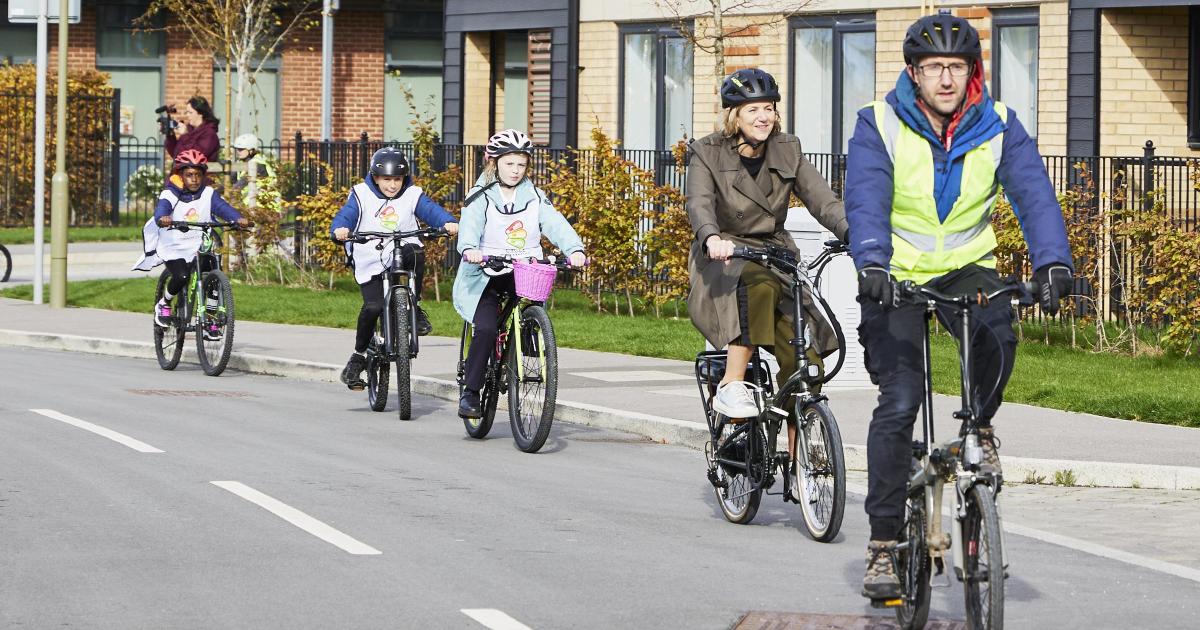Primary school pupils in Oxfordshire took part in Bikeability cycling training on Friday, October 24, joined by local transport minister Lilian Greenwood, who visited to see the scheme in action and highlight the benefits of active travel.
Bikeability, funded by the Department for Transport, aims to equip children across England with the skills, confidence, and independence to cycle safely.
Transport minister Lilian Greenwood meets pupils during a Bikeability training session in Oxfordshire (Image: James Arbuckle)
In Oxfordshire, the programme is delivered by the county council’s fire and rescue service road safety team and has already trained more than 7,000 children.
Ms Greenwood said: “Cycling to school is a great way for children to stay active, enjoy the outdoors, and build healthy habits that last a lifetime.
“It not only supports physical and mental wellbeing, but also helps to reduce traffic, cut carbon emissions, and ease pressure on the NHS – a key part of our Plan for Change.
“This Government is supporting more active travel across the country, with a £300 million boost this year to build hundreds of miles of new cycleways and pavements.”
The government has committed £616 million over the next four years to support active travel, with an additional £300 million announced in February to deliver up to 300 miles of new cycle lanes and pavements across England.
This investment is expected to save 40,000 NHS sick days and deliver £1.4 billion in economic benefits.
Pupils and instructors proudly display their cycle training certificates alongside Lilian Greenwood and road safety leaders (Image: James Arbuckle)
Emily Cherry, chief executive of the Bikeability Trust, said: “Almost six million children have received Bikeability cycle training since the programme began in 2007.
“Our ambition is that no child leaves primary school without Level 2 on-road cycle training, which we know has a lasting impact on safety, confidence and behaviour.
“With a record nearly half a million (430,000+) children taking part in Cycle to School Week, this success reflects the Government’s commitment to active travel and shows how cycling can be a safe, healthy and enjoyable choice for families across the country.”
Despite the benefits, a significant number of school journeys are still made by car.
Currently, around 43 per cent of primary and 30 per cent of secondary school children are driven to school across England.
In London, school drop-offs account for a quarter of all morning rush hour trips.
The government hopes that by investing in infrastructure and training, more families will feel confident choosing active travel options, reducing congestion and supporting healthier lifestyles.

